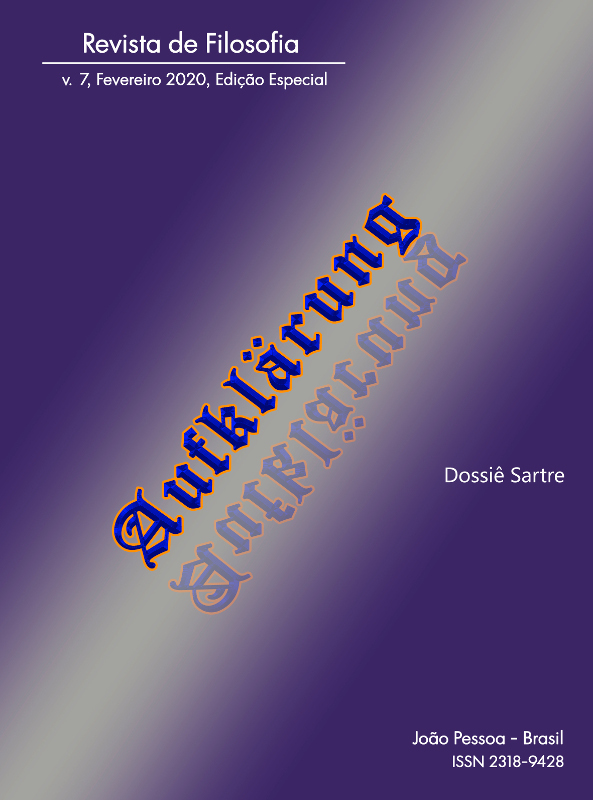Les Mouches: situated freedom and reflexivity in Jean-Paul Sartre
DOI:
https://doi.org/10.18012/arf.2019.50134Abstract
This paper aims to discuss some of the theoretical-methodological foundations used by Jean-Paul Sartre as a playwright - more precisely, in his play Les Mouches (1943), in which Orestes is the main character. From Orestes´s journey throughout the plot, Sartre exposes the anguish experienced by the character as he exercises the secret of his onto-phenomenological condition of knowing he is free. Sartre then advocates, in this play, in favour (or against) Orestes, as the character needs, through his reflective consciousness of freedom, to pave his own way in order to break with a socially imposed logic, even though this rupture process is posed as an obligation. This leads to the continuous structural maintenance of Orestes as freedom and being freedom, the character cannot accept Jupiter's superior plans, and therefore, breaks free from him. This paper analyses specific situations experienced by Orestes, as well as some possibilities that could have been listed by him and those which were in fact deliberated. With each of Orestes´s decisions, a new background is structured, creating new possibilities and future projections. Also, it is noted that not only is Orestes the icon of the manifestation of freedom, but he, as well as all the others that constituted his reality, could make choices, and were, therefore, free. What sets Orestes apart from the others? There is, in fact, an existential distance, because the former knows his condition of freedom in the world, whereas the latter are free, however unknowingly. Finally, the analysis reveals that all of Orestes´s actions meet the structural principle of any and every action that has dialectics and nothingness at its core.
Downloads
Additional Files
Published
How to Cite
Issue
Section
License
Journal general policy
1.This journal works under a Creative Commons License aplied to online journals. That icence can be read in the following link: Creative Commons Attribution 4.0 International (CC BY 4.0).
2.Accordingly to this License, a)the journal declares that authors hold the copyright of their articles without restrictions, and they can archieve them as post-print elsewhere. b)the journal allow the author(s) to retain publishing rights without restrictions.
Metadata Policy for information describing items in the repository
1. Anyone may access the metadata free of charge at anytime.
2.The metadata may be re-used in any medium without prior permission, even commercial purposes provided the OAI Identifier or a link to the original metadata record are given, under the terms of a CC BY license refered for the Journal.







































